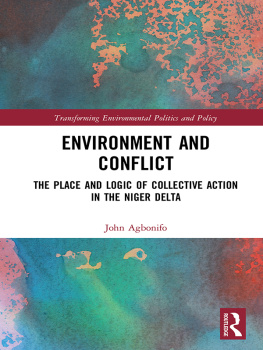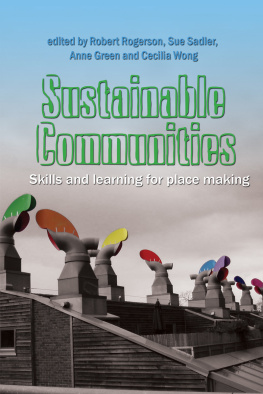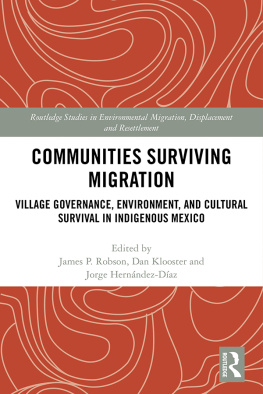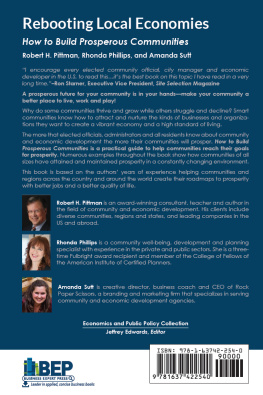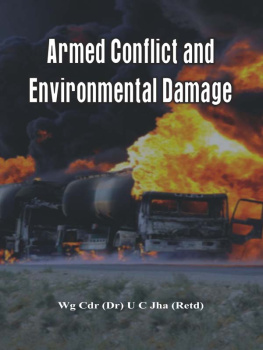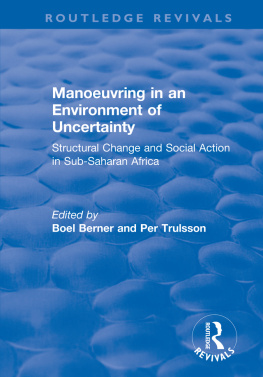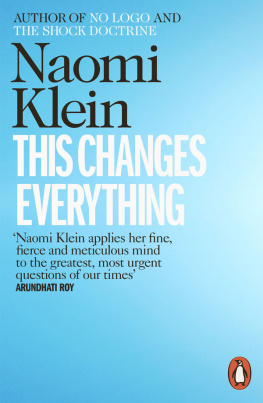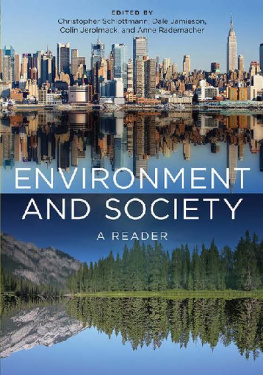Environment and Conflict
Environmental degradation is a fast-growing problem that not only threatens to erode future development and undermine economic prosperity, but also victimises and displaces ordinary peoples and communities in some of the most fragile areas of the world. Often grassroots opposition and mobilisation is seen through a secular lens, implying that collective action is merely material and provincial.
In this book John Agbonifo argues for a decolonisation of the environment and to see the environment from the perspective of local communities. He examines the case of the Ogoni struggle against the Shell oil company, and asks how may we understand the struggle of the Ogoni against the State and Shell? Was the conflict merely about a minority ethnic drive at securing provincial advantages in distributional matters, or the legitimate actions of a local community aimed at preserving its environment and livelihood? Exploring the material and symbolic, provincial and nationalist dimensions of Ogoni motivation, Agbonifos book is the first serious attempt to discuss these issues.
The book will appeal to scholars and students of the Niger Delta conflicts, resource-related conflicts and social movements, in Africa and elsewhere. Those researching in the fields of development studies, political geography, civil society and collective action will also find it useful.
John Agbonifo is a senior lecturer at the Osun State University, Osogbo, Nigeria.
Transforming Environmental Politics and Policy
Series editors
Timothy Doyle, Keele University, UK and University of Adelaide,Australia and Philip Catney, Keele University, UK
The theory and practice of environmental politics and policy are rapidly emerging as key areas of intense concern in the first, third and industrializing worlds. People of diverse nationalities, religions and cultures wrestle daily with environment and development issues central to human and non-human survival on the planet Earth. Air, Water, Earth, Fire. These central elements mix together in so many ways, spinning off new constellations of issues, ideas and actions, gathering under a multitude of banners: energy security, food sovereignty, climate change, genetic modification, environmental justice and sustainability, population growth, water quality and access, air pollution, mal-distribution and over-consumption of scarce resources, the rights of the non-human, the welfare of future citizens-the list goes on.
What is much needed in green debates is for theoretical discussions to be rooted in policy outcomes and service delivery. So, while still engaging in the theoretical realm, this series also seeks to provide a real world policy-making dimension. Politics and policy making is interpreted widely here to include the territories, discourses, instruments and domains of political parties, nongovernmental organizations, protest movements, corporations, international regimes, and transnational networks.
From the local to the global-and back again-this series explores environmental politics and policy within countries and cultures, researching the ways in which green issues cross North-South and East-West divides. The Transforming Environmental Politics and Policy series exposes the exciting ways in which environmental politics and policy can transform political relationships, in all their forms.
For more information about this series, please visit: https://www.routledge.com/politics/series/ASHSER-1371
Global Environmental Governance, Civil Society and Wildlife
Birdsong After the Storm
Margi Prideaux
Environment and Conflict
Place and the Logic of Collective Action in the Niger Delta
John Agbonifo
Environment and Conflict
Place and the Logic of Collective Action in the Niger Delta
John Agbonifo
First published 2019
by Routledge
2 Park Square, Milton Park, Abingdon, Oxon OX14 4RN
and by Routledge
711 Third Avenue, New York, NY 10017
Routledge is an imprint of the Taylor & Francis Group, an informa business
2019 John Agbonifo
The right of John Agbonifo to be identified as author of this work has been asserted by him in accordance with sections 77 and 78 of the Copyright, Designs and Patents Act 1988.
All rights reserved. No part of this book may be reprinted or reproduced or utilised in any form or by any electronic, mechanical, or other means, now known or hereafter invented, including photocopying and recording, or in any information storage or retrieval system, without permission in writing from the publishers.
Trademark notice: Product or corporate names may be trademarks or registered trademarks, and are used only for identification and explanation without intent to infringe.
British Library Cataloguing-in-Publication Data
A catalogue record for this book is available from the British Library
Library of Congress Cataloging in Publication Data
A catalog record has been requested for this book
ISBN: 978-1-4-0943-733-8 (hbk)
ISBN: 978-1-315-57996-2 (ebk)
To Joy, Erhan and Nosazena
Introduction
What drives conflict between local communities, the State and multinational corporations over the environment? Two competing approaches to the problem begin from first principles, delineating how we should understand the environment. Based on such definition, surrogates explain why conflict emerges over the environment without bothering whether their definition is commonly shared by both communities and capitalists. Largely, the definition of the environment on offer is rooted in a modernist scientific worldview, which dispenses with other worldviews. Yet, the delegitimated worldviews remain valid or coherent to local communities. This book focuses on the incommensurability between environment as seen by capital and communities and its role in the emergence of political conflicts in resource-rich domains.
It is not clear in many accounts what environment means. Conventional understanding of environment, foregrounded in a technological logic, designates the latter as a resource for human use and background against which social actions are enacted.1 Champions of this view often include the State, multinational corporations in the extractive sector, and some scholars and journalists. The other vision comprehends environment, beyond its resource value, as a meaningful place, the physical extension of community, and the abode of ghosts, spirits and deities. The worldview rests on a moral order in which environment is not separate from social actors; it is the meeting place of deities, ancestors, human beings and other living and non-living things.2
The two logics are inherently conflictual, assuming overt and deadly dimension, wherever industrial capital meets with land-dependent grassroots communities. Everywhere, the story is the same; from the Bergama Movement (Turkey), Naxalite Movement, and Narmada Bachao Andolan Movement (India), the Zapatistas (Mexico), and the Mapuche (Chile), to various grassroots movements in the Niger Delta. The confrontation between the two logics has generated wicked problems for local livelihoods, untold human misery and expropriation. Yet, many scholars continue to use the concepts of environment and conflict without staking out in clear terms what they mean.

